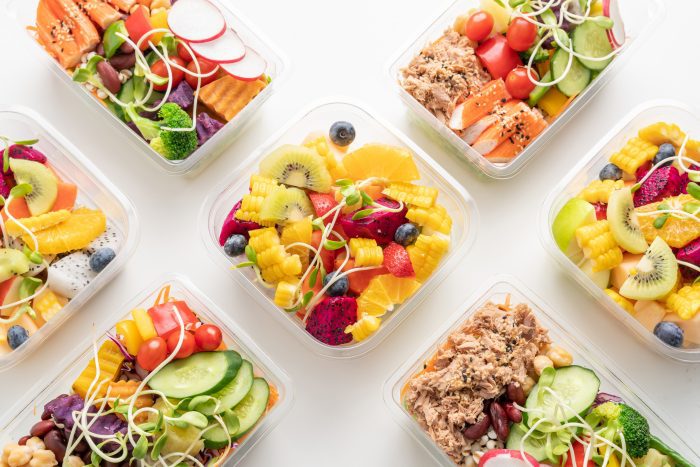Medical Compass: Fill your lunchbox with healthier options
Processed meats increase health risks
By David Dunaief, M.D.

For many, Labor Day weekend signals the beginning of a regular ritual of making school lunches or, for those of us who work from an office, our own lunches. Sandwiches are typical fare, because they travel well and are easy to handle.
Unfortunately, common sandwich ingredients, including processed meats, are increasingly implicated as potential causes of diseases, including several cancers, heart disease, stroke and diabetes.
Processed meats are those that have been cured, salted, fermented or smoked. Turkey and roast beef were often in my lunch box when I was growing up. The prevailing thought at the time was that deli meats made without artificial nitrates, nitrites and preservatives were healthy. Unfortunately, more recent studies show otherwise.
According to a study in the European Journal of Epidemiology, high processed meat intake was positively associated with risk of breast, colorectal, colon, rectal, and lung cancers (1).
Increased stroke risk
In a large, prospective cohort study, results showed a 23 percent increased risk of stroke in men who consumed the most processed meats (2). Deli meats, including low-fat turkey, ham and bologna, considered healthy by some, were implicated. The 40,291 Swedish participants were followed for about ten years.
The increased risk could be attributed potentially to higher sodium content in processed meats. Another mechanism could be nitrates and nitrites. Interestingly, participants were mostly healthy, except for the processed meats. Thus, processed meats could interfere with the benefits of a heart-healthy diet, according to the authors.
Increased cancer risk
In the large prospective Multiethnic Cohort Study, there was a 68 percent increased risk of pancreatic cancer in participants who consumed the highest amounts of processed meats compared to the lowest (3). Participants were followed for seven years. The authors believe that carcinogenic substances in meat preparation, not necessarily fat or saturated fat, were the reason for increased risk. Pancreatic cancer is deadly, since most patients don’t have symptoms; therefore, it’s not discovered until its very late stages.
Processed meats also increase the risk of colorectal cancer. In a meta-analysis, there was an increased risk of 14 percent per every 100 grams, or 3.5 ounces (approximately one serving) of processed meat per day (4). Two slices of deli meat are equal to one serving. A deli’s turkey sandwich often includes about five servings of processed meat in one meal.
In the EPIC trial, a prospective study with more than 420,000 participants, processed meats increased the risk of colorectal cancer by 35 percent (5). The absolute risk of developing colorectal cancer was 71 percent over ten years for those who were age 50.
Other cancers implicated in processed meats include lung, liver and esophageal cancers, with increased risks ranging from 20-60 percent according to the NIH AARP Diet and Health study (6). A separate analysis of the EPIC trial showed that there was a greater than two times increased risk of esophageal cancer with processed meats (7).
Type 2 Diabetes risk
In one of the most prestigious and largest meta-analyses involving the Health Professionals’ Follow-up Study and the Nurses’ Health Study I and II, results demonstrated a 32 percent increased risk of type 2 diabetes in participants who had a one-serving increase of processed meat consumption per day (8). This data was highly statistically significant and involved over four million years of cumulative follow-up. Interestingly, the authors estimate that replacing processed meat with one serving of nuts, low-fat dairy and whole grains would reduce risk substantially.
Other lunchbox options
Consider making bowls that include greens, grilled vegetables, healthy grains and beans. These can be prepared in a batch and distributed among lunch-sized containers that can be grabbed from the refrigerator when preparing lunches. If you want to include meat, add small cubes of unprocessed meat you’ve prepared yourself, which can lower your sodium and nitrate consumption.
References:
(1) Eur J Epidemiol. 2021 Sep;36(9):937-951. (2) Am J Clinical Nut. 2011;94 (2):417-421. (3) J Natl Cancer Inst 2005;97 (19): 1458-1465. (4) PLoS One. 2011;6 (6):e20456. (5) J Natl Cancer Inst. 2005 Jun 15;97 (12):906-16. (6) PLoS Med. 2007 Dec;4 (12):e325. (7) J Natl Cancer Inst. 2006 Mar 1;98 (5):345-54. (8) Am J Clinical Nutrition 2011;94 (4): 1088-1096.
Dr. David Dunaief is a speaker, author and local lifestyle medicine physician focusing on the integration of medicine, nutrition, fitness and stress management. For further information, visit www.medicalcompassmd.com or consult your personal physician.







